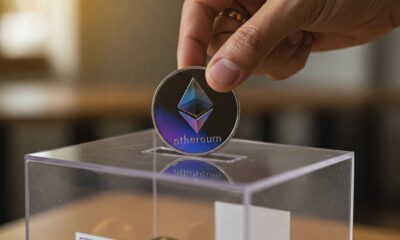Market
This DePin Project Secures $9 Million Investment From a16z


Andreessen Horowitz’s (a16z) crypto investment arm has spearheaded a $9 million investment in the decentralized physical infrastructure network (DePin) project Daylight Energy.
This initiative marks a pivotal advancement in decentralized solutions for the energy sector. It aligns with the growing trend of integrating blockchain technology to revolutionize grid management and energy distribution.
Daylight Energy Launches Its Testnet Following the a16z Investment
Daylight Energy will utilize the newly acquired funds to enhance its testnet. This testnet pioneers a decentralized protocol that transforms energy grid operations through distributed energy resources (DERs).
The project tackles crucial inefficiencies in the current system by harnessing data from DERs like solar panels, smart thermostats, and batteries. Consequently, this facilitates optimal grid performance.
Read more: What Is DePIN (Decentralized Physical Infrastructure Networks)?
Traditionally, the energy grid suffers from limited visibility into DERs, with data aggregation taking days or even months. Daylight offers a real-time data solution, thereby boosting the grid’s responsiveness to demand and supply changes. This approach improves grid management and also fosters sustainable energy practices by facilitating the effective use of renewable resources.
“DERs are often used to reduce load on the electrical grid, or even supply power to the grid, during times of peak demand. Their source is usually an individual household or business that has no clear incentive to provide that support when it’s needed. Solving this collective action problem could be invaluable for our energy grid,” a16z crypto wrote.
Initially, Daylight plans to generate revenue by selling DER data to traditional energy companies. However, the ultimate goal is to enable the creation of virtual power plants.
These plants would manage aggregated sets of DERs as a unified energy resource. This strategy enhances power distribution efficiency and supports the grid during peak times.
The DePin sector, which addresses various industrial challenges, including computation, telecommunications, and storage, is projected to reach a $3.5 trillion valuation by 2028. Within this sector, energy-focused DePin projects are attracting significant attention, evidenced by substantial investments from entities such as a16z.
Read more: Top 10 Web3 Projects That Are Revolutionizing the Industry
Established DePin players like Helium are also exploring the energy sector. Recently, Helium announced plans for new subnetworks that might involve decentralized computing and energy management. A Swedish project, Srcful, proposed becoming a Helium subnetwork focused on energy, indicating a broader shift toward decentralized energy solutions.
“Using the existing infrastructure of Helium is a big deal for solving one of the large challenges in the energy sector today — the need for more connected resources and flexibility. This is the key for being able to accelerate more renewable energy in the grid. We’re essentially building the base layer for a connected grid that includes even the smallest energy resources, and the approach incentivising the builders (by DePIN) we believe we can reach scale and many different integrations,” Fredrik Ahlgren, CEO of Srcful, told BeInCrypto.
Disclaimer
In adherence to the Trust Project guidelines, BeInCrypto is committed to unbiased, transparent reporting. This news article aims to provide accurate, timely information. However, readers are advised to verify facts independently and consult with a professional before making any decisions based on this content. Please note that our Terms and Conditions, Privacy Policy, and Disclaimers have been updated.












